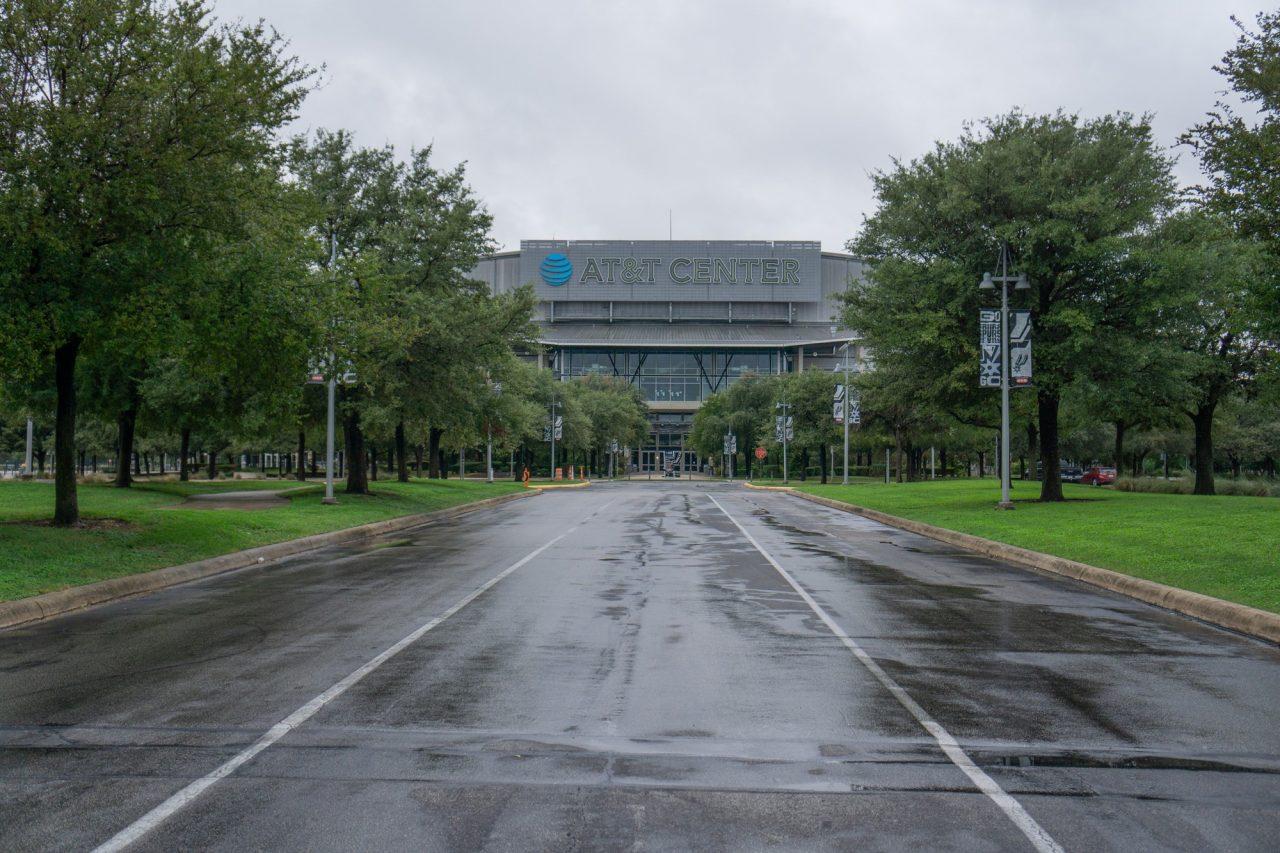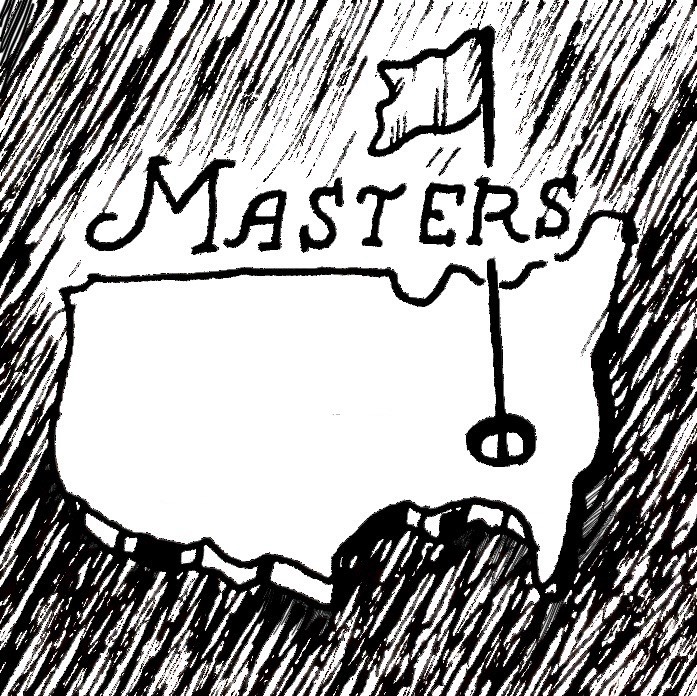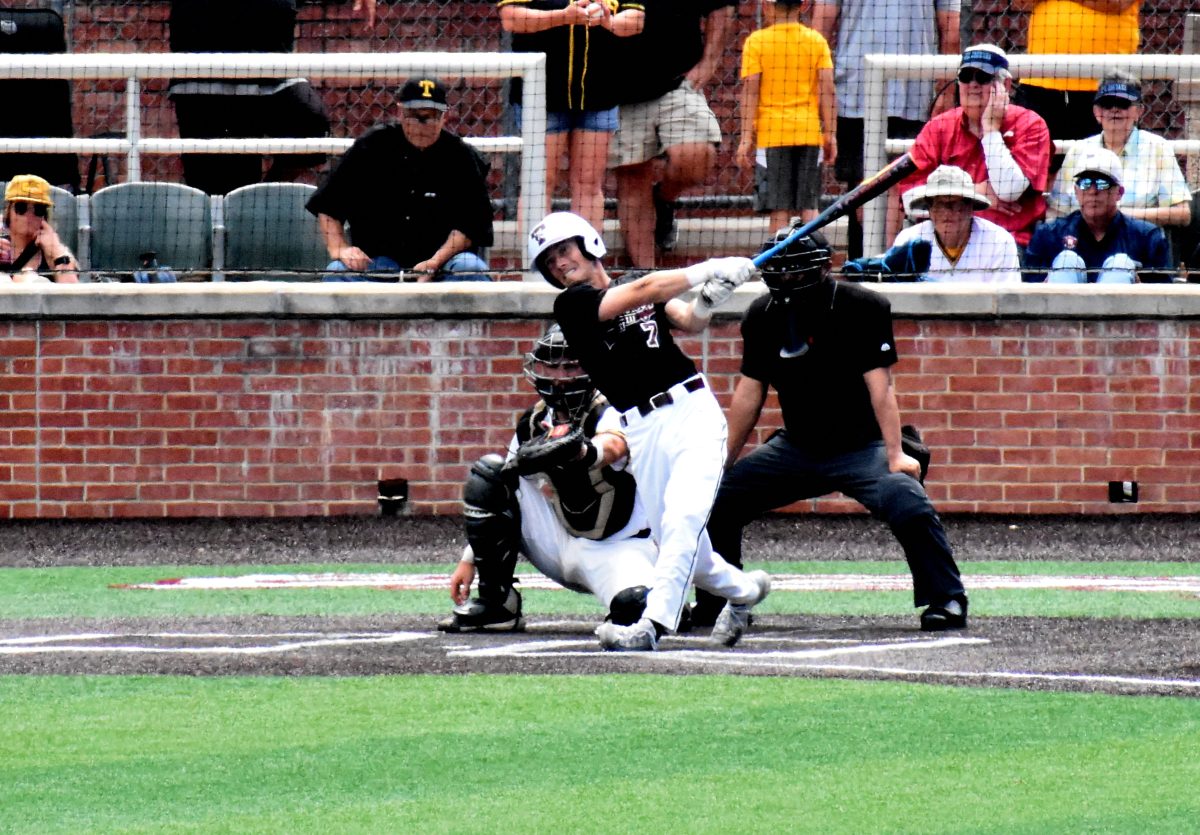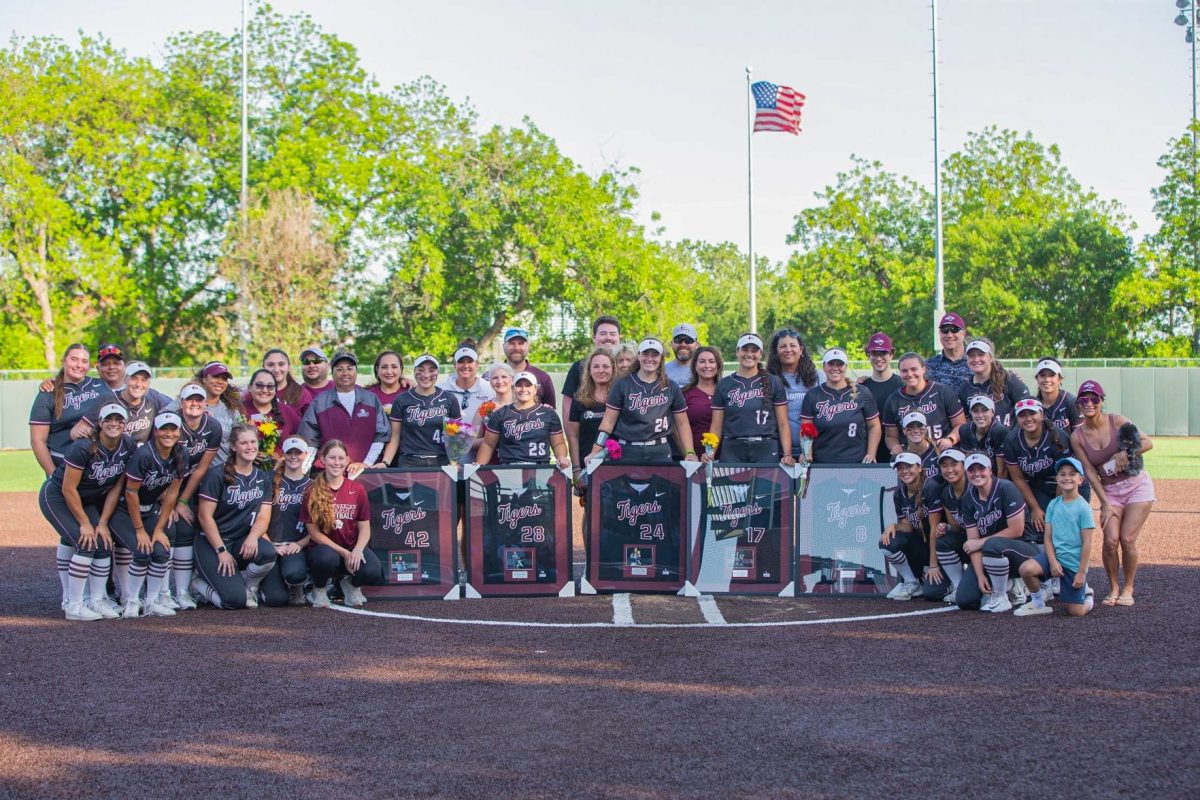photo by Kate Nuelle
The AT&T Center in San Antonio is one of many professional sporting arenas that is opening up for voting because of the upcoming 2020 Presidential Election. It’s yet another instance of the intersection between sports and politics in a year that’s seen a rise in political protests in sports. Professors across disciplines shared their reactions to stadiums opening up for voters and how that may impact voter turnout in the upcoming election.
Jacob Sanchez, professor in the Department of Communication, is currently teaching a Sport Media class. Sanchez said he is hopeful that voting at sports stadiums will increase the number of people who participate in the election. He believes it will be especially interesting to see if this will impact first-time voters because, in his opinion, those accustomed to voting will not be impacted as much.
“Younger non-voters are more likely to passively bump into news than seek it outside of social media. Sports leagues who are active on social media have a large platform to reach those followers,” said Sanchez.
Sanchez highlighted that not all of the National Basketball Association (NBA) arenas are open for voting. On Aug. 28th, the NBA and the NBA Players Association issued a joint statement on social justice and racial equality. “In every city where the league franchise owns and controls the arena property, team governors will continue to work with local elections officials to convert the facility into a voting location for the 2020 general election to allow for a safe in-person voting option for communities vulnerable to COVID.”
Some arenas, like the AT&T Center, are publicly owned, so it’s up to local officials to decide if they wish to turn the stadiums into polling places. Sanchez believes it is an easy way to increase voter involvement since none of the stadiums are currently being used for the NBA playoffs. He pointed out that there has been a good amount of performative activism in sports this year, and that ultimately, that performative activism didn’t result in any real change or challenge the systems in a productive manner.
“Performative actions on social media, such as posting a blackout image to Instagram, are criticized for not doing enough to change the actions of people, and especially actions of large organizations. Examples of performative action in sport are painting ‘End Racism’ in an end-zone for the Kansas City Chiefs while not acknowledging or changing the team name or fan chants. More tangible changes found in the NBA are allowing the public to use empty stadiums as voting locations or supporting the Police Accountability Project through initiation and funding,” Sanchez said.
“The WNBA in particular has a history of progressive actions taken by players, to dedicate the season to Breonna Taylor and the ‘Say Her Name’ campaign and reminding fans to register for the Census at the start of some games,” Sanchez said. “Players for the Atlanta Dream have also been vocal against their co-owner [and] Senator Kelly Loeffler who has spoken out against the Black Lives Matter movement herself. They have worn T-shirts with ‘Vote Warnock’ in support of Raphael Warnock, who is running against Senator Loeffler. Historically, the WNBA and NBA fans have skewed more liberal and that is reflected by their actions.”
John Burke, a visiting Assistant Professor in the Department of Political Science, expresses doubt that the repurposing of the sporting arenas will drastically increase voter turnout.
“Whether enough people will gain access through [voting in sports arenas], I am skeptical,” said Burke. “The major deterrent is the virus and it depends on what kinds of precautions are being taken.”
Burke added that he thinks stadiums open for voting will encourage people who watch sports to register to vote, but he is not sure how much of a tipping point in the election this will be.
“My hope is that sports teams continue this effort beyond this year, and I think that will make them more likely to have a larger impact over a longer period of time,” Burke said.
David Crockett, the Department Chair in the Department of Political Science, shared similar skepticism regarding the impact these stadiums could have on the election.
“In terms of voting, the nation has worked to make it easier over the years — getting rid of formal and legal barriers, less restrictive registration rules, motor voter registration, early voting, etc. Opening up sports arenas will expand the venues for voting, but people will still have to want to vote and make the effort to vote. And how that will work in the current pandemic environment, I’m not sure,” said Crockett. “But ultimately, I think it will have at best a marginal impact. Voting takes time and effort, and I suspect there is a percentage of the population that simply finds that time and effort to be prohibitive, or just not worth it.”






